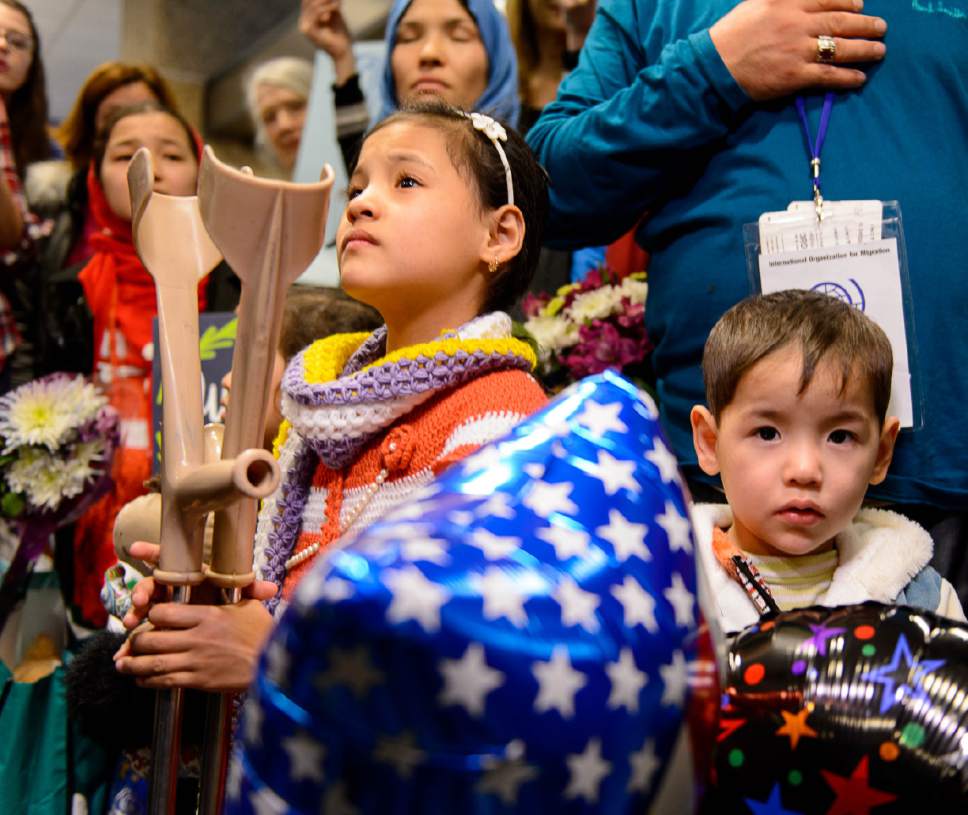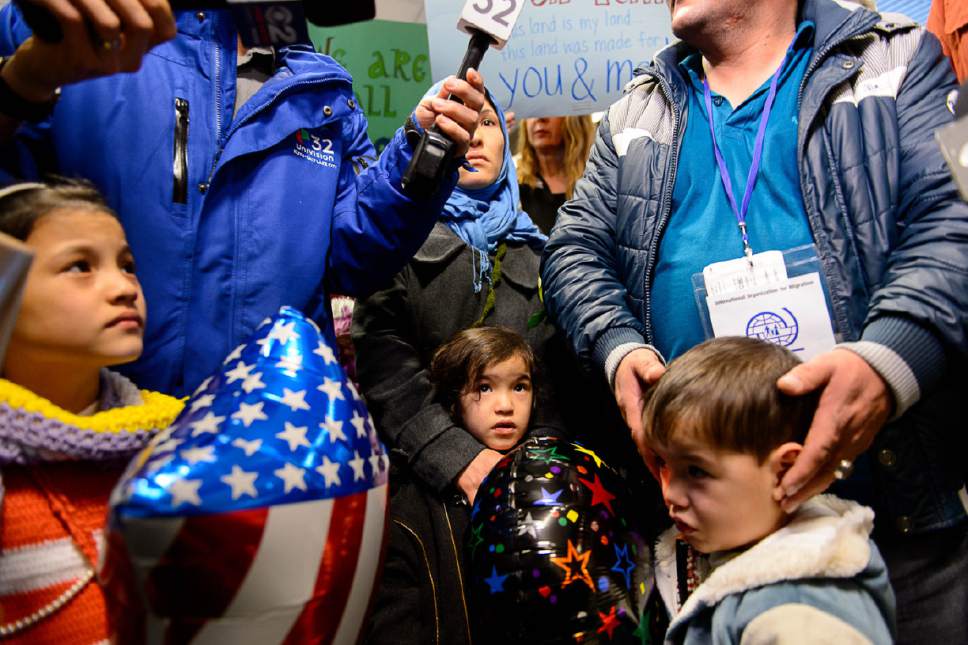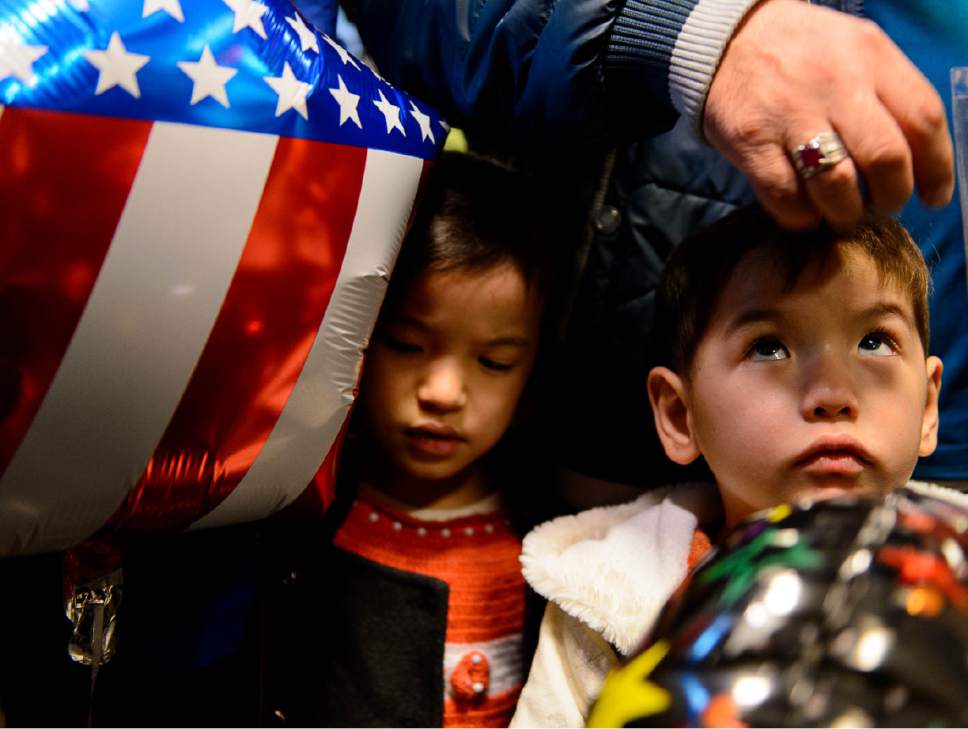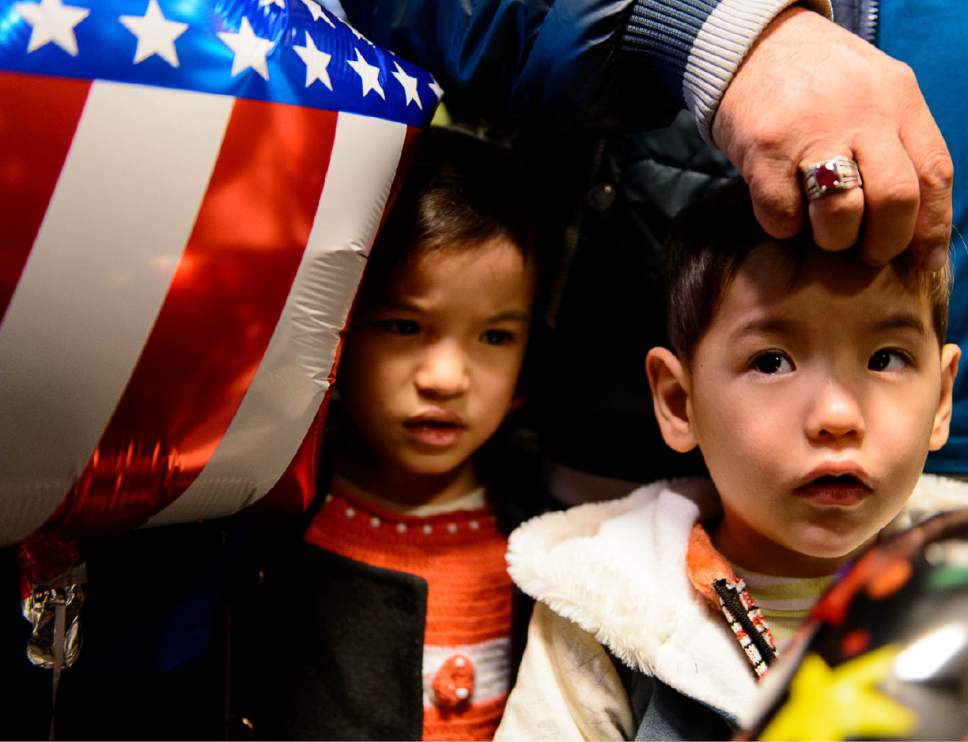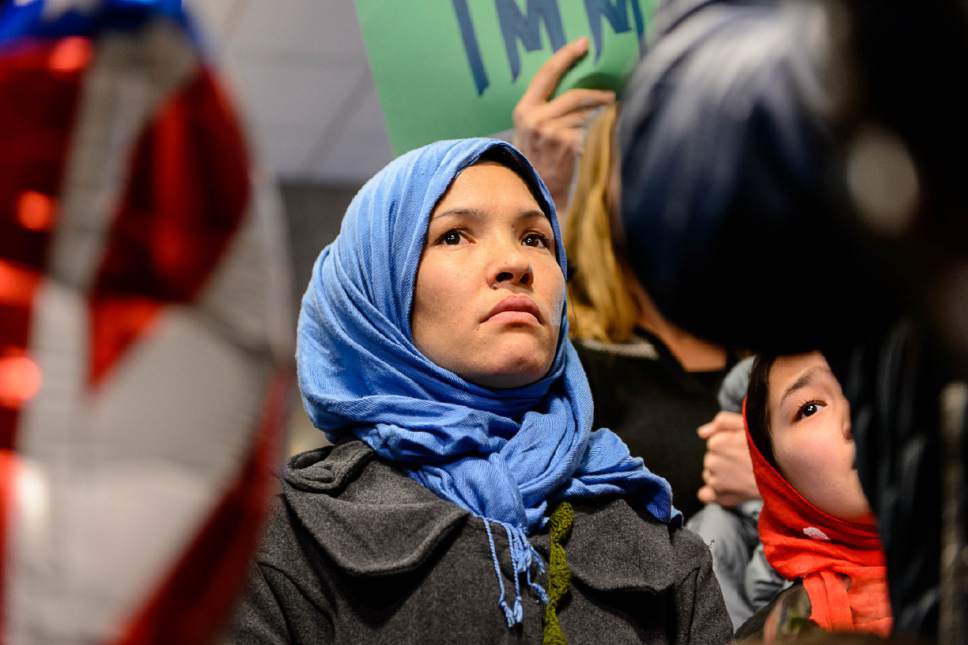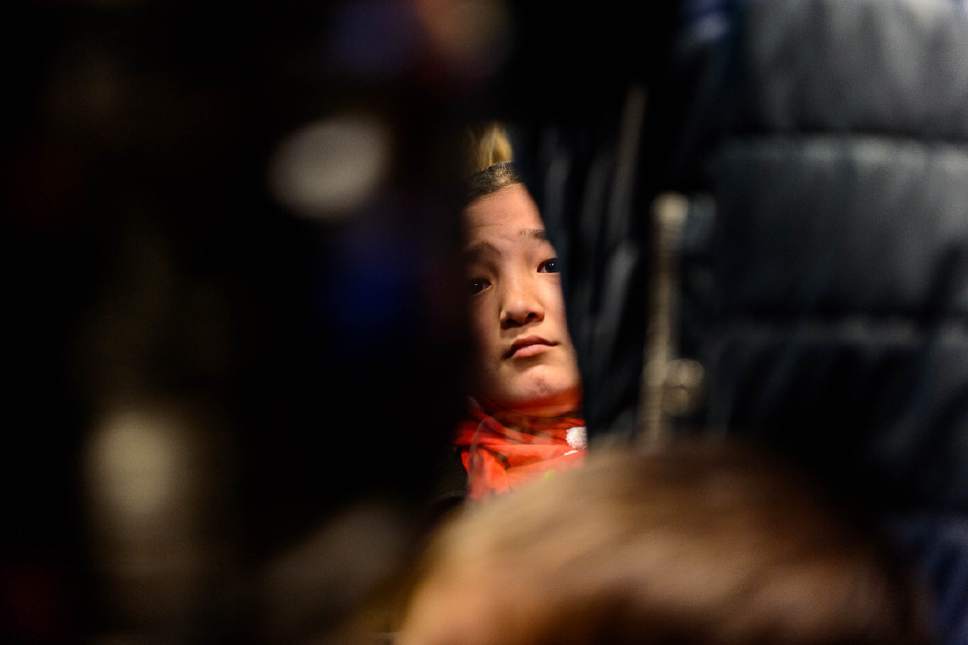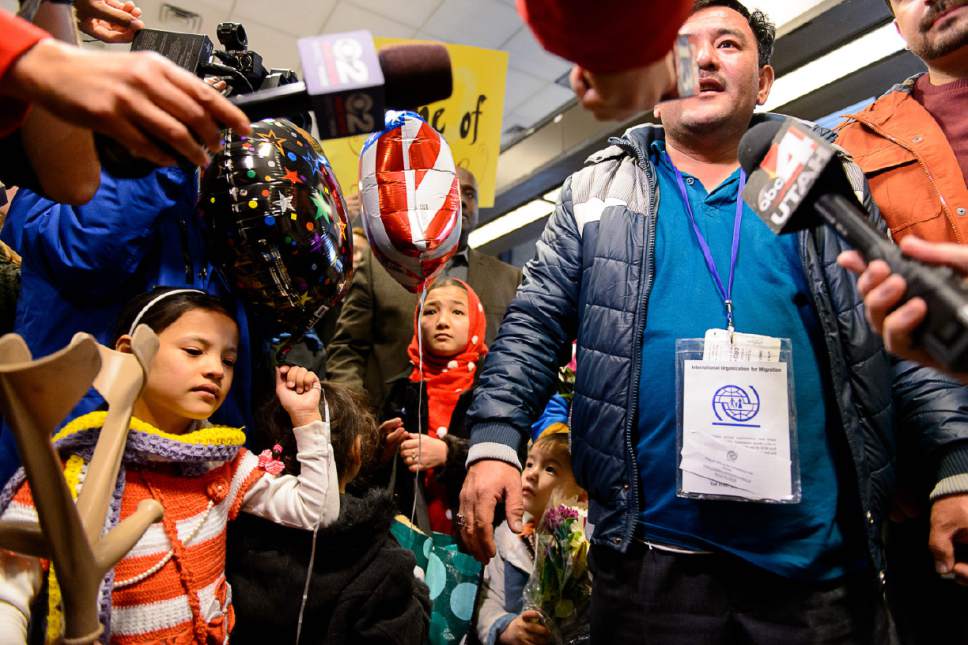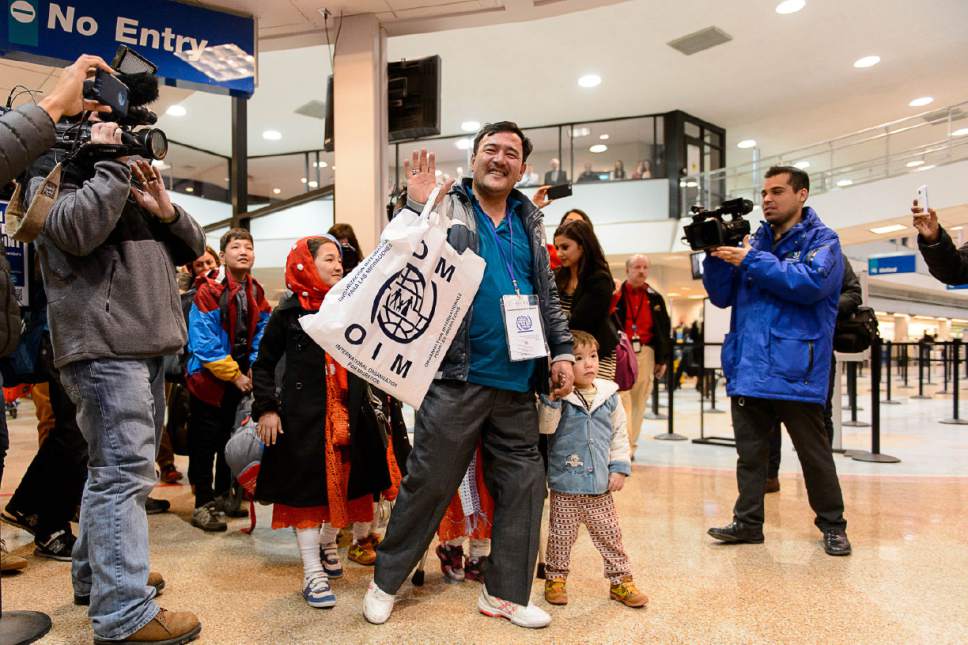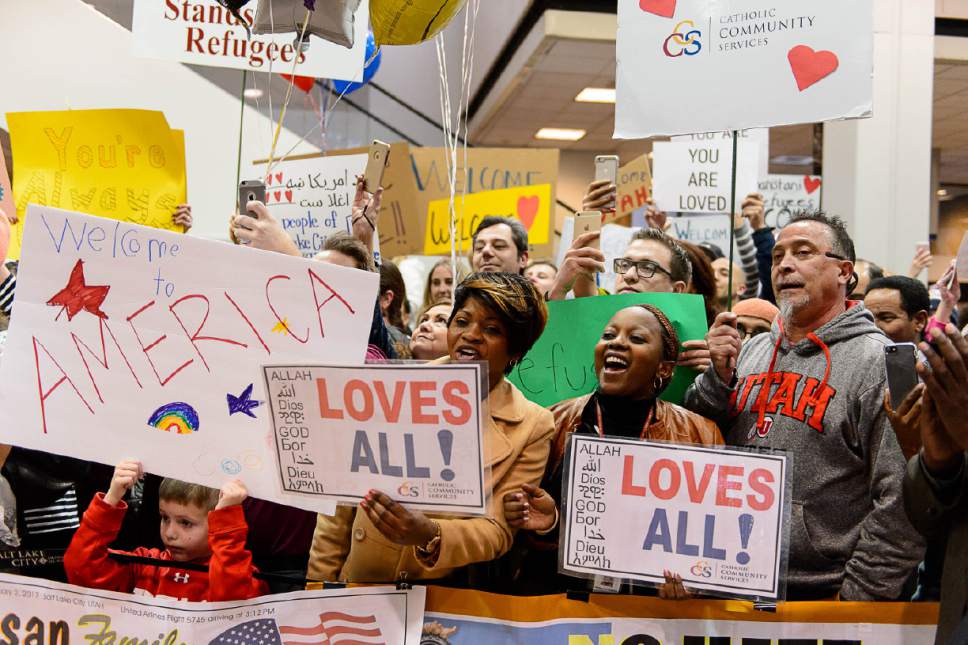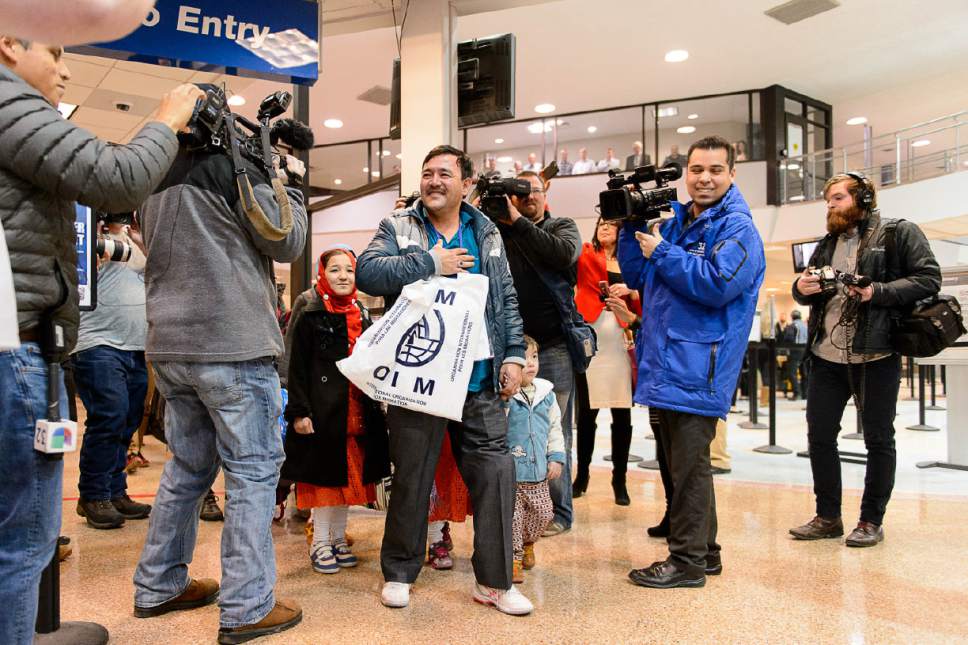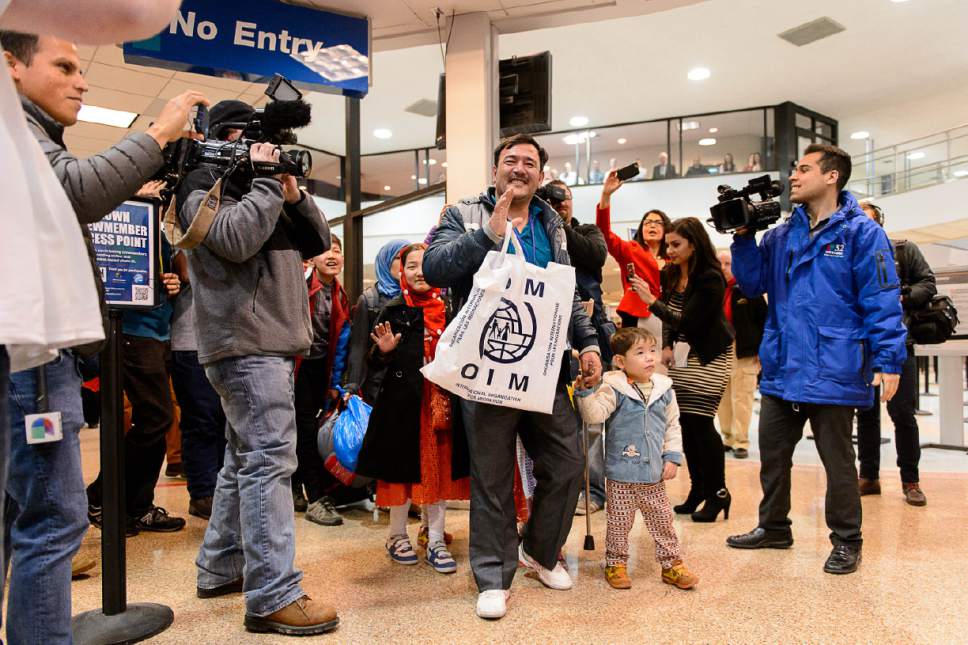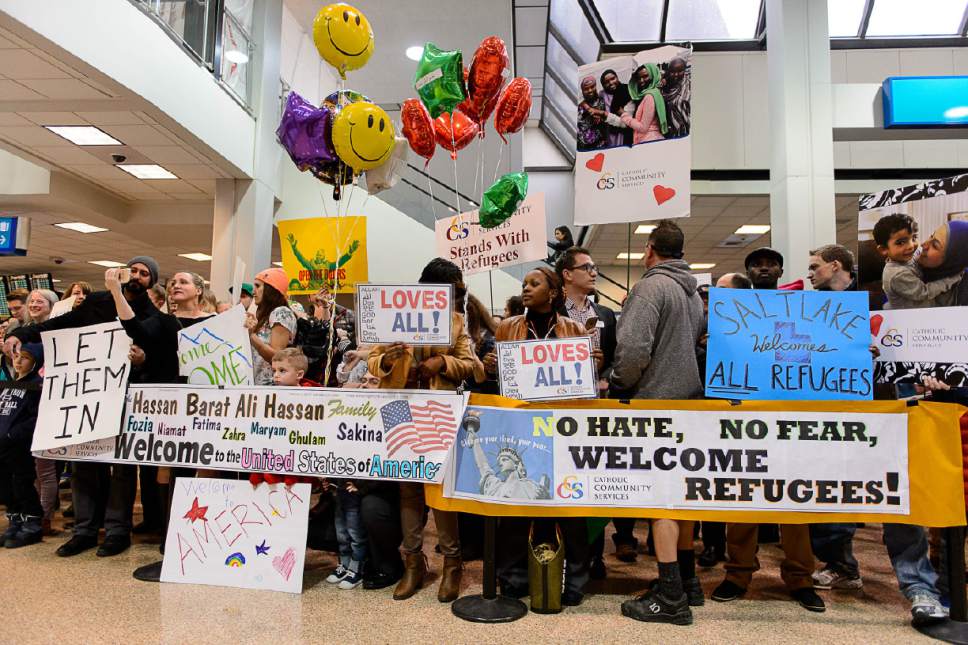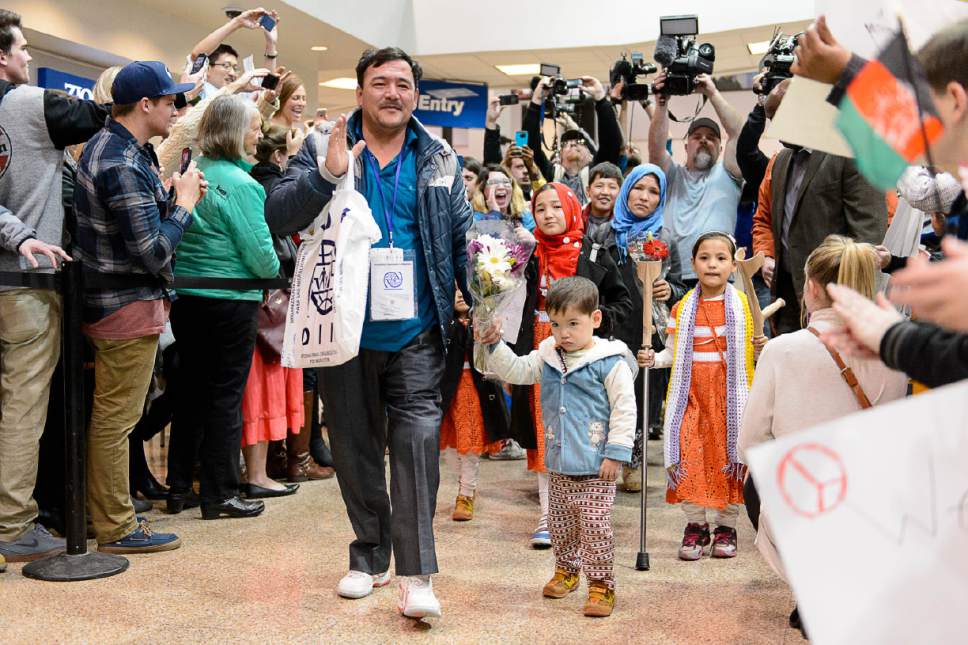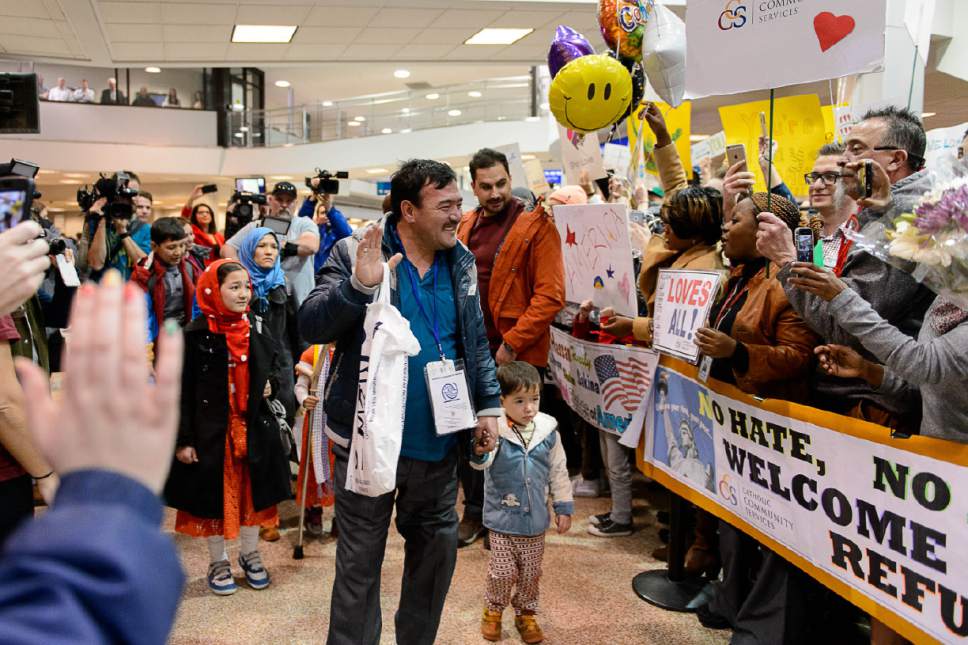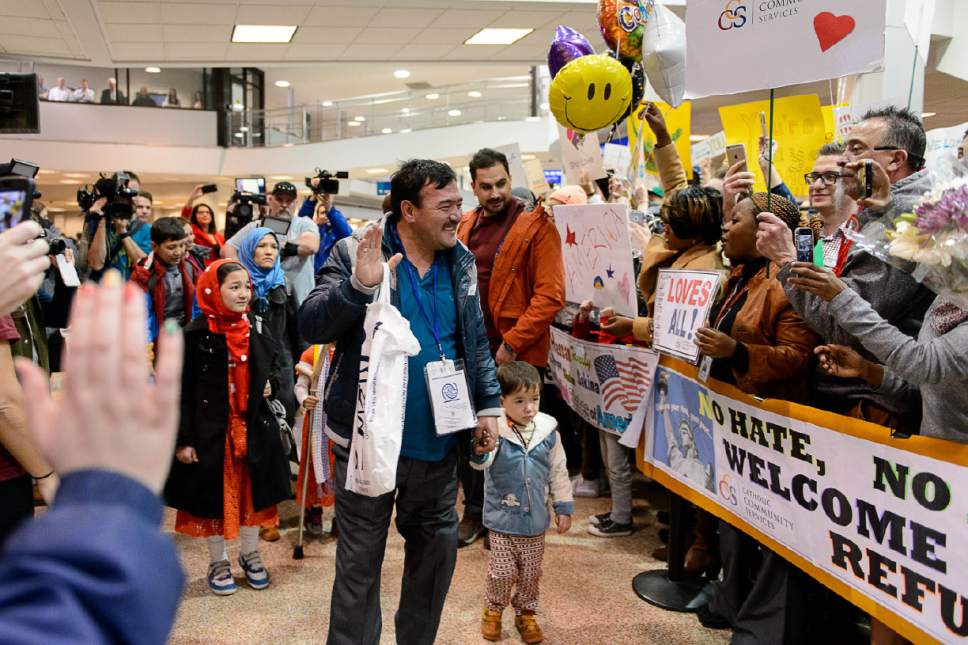This is an archived article that was published on sltrib.com in 2017, and information in the article may be outdated. It is provided only for personal research purposes and may not be reprinted.
About 300 well-wishers bearing placards and balloons jammed into Terminal One at Salt Lake City International Airport on Thursday to welcome a weary-looking Afghan family — likely the last refugees allowed to enter Utah after President Donald Trump's immigration order.
Through an interpreter, Hassan Barat Ali Hassan thanked Utahns for the warm welcome. He was accompanied by his wife, Fozia Ramazan Ali Qurban Ali; two sons, ages 15 and 4; and three daughters, ages 11, 8 and 6.
"This is the first time in our lives we have been welcomed," he said. "You are so kind and nice."
It was only through a federal judge's partial stay of the 120-day temporary ban on refugees that Ali Hassan and his family were able to enter the United States, said Danielle Stamos of Catholic Community Services, which sponsored them. They were too far into the process to be turned around, she explained.
The family had fled the Afghan war several years ago, crossing the border into Pakistan.
They have been living in a refugee camp and applied for refugee status about two years ago.
Ali Hassan said his family became nervous when they heard about the ban that critics say is aimed at Muslims.
"So we are really lucky to be here," he said. "But my mother was rejected and she is somewhere in Turkey, and we are very worried. We were told she would be sent back to Islamabad."
Americans shouldn't fear Muslims, Ali Hassan said. "Islam is a religion of peace. Islam is a religion of love," he told news reporters.
"We hope Donald Trump will show some kindness and lift the ban."
Angela Ashurst-McGee, from West Jordan, came to the airport with her 5-year-old daughter, who made a sign saying, "Welcome to America."
"I'm here to show my support for refugees and to demonstrate that America welcomes refugees," Ashurst-McGee said. "It's our responsibility. And I think bringing refugees will not make our country less safe."
As they waited for the family to arrive, the crowd broke into song with verses of "This Land Is Your Land" and waved placards with slogans, such as, "We love refugees, no ban, no wall" and, "No hate, no fear, welcome refugees."
Mahnlar Htunt entered the United States as a Burmese refugee in 2008.
"We want to make them feel at home," he said of the Afghan family. "They have been fleeing the war for a long time."
Htunt said he is grateful to the United States and enjoys living in Utah.
"I really like it here because it is safe and we feel welcome in this community and in this country," he said.
About 1,200 refugees per year are sponsored in Utah by Catholic Community Services and the International Rescue Committee.
In the future that number will be diminished, Stamos said. President Barack Obama's administration had allowed 110,000 refugees to enter the country annually. The Trump administration, however, said it will set the limit at 50,000 after the temporary ban expires four months from now.
"There are so many more people we could be helping," Stamos said.
Aden Batar, the director of immigration and refugee resettlement for Catholic Community Services, said the United States has a proud tradition of welcoming immigrants.
"We have a history of giving life back to 3 million refugees," he said. "None of them has caused any harm."
Batar, himself, was a refugee from Somalia. He entered this country in 1994.
Despite White House assertions, Batar said the refugee vetting process is working very well and that the executive order is clearly aimed at Muslims.
"Let's ask the intelligence community whether that system is working or not," he said. "We know what President Trump said during the campaign — that he would ban Muslims. I think that is what this is."
People around the world look up to America as a great, generous nation that offers promise to those who would help build it, Batar said.
"If we don't stand up for refugees now," he said, "we are making a very big mistake."


